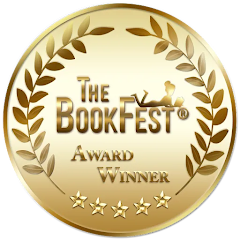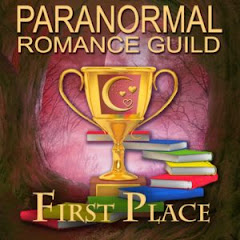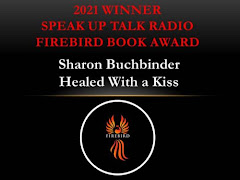What made you decide
to be an author? I love telling stories, so I thought I’d try writing one.
After I finished my first, I showed it to a few people, and they thought it was
pretty good. I mustered up the courage to query a few literary agents, and a
couple of them liked it, too.
What do you like
best about being a writer? What do you like the least? I love the peace
that comes with immersing myself in a scene. The focus required to disappear
into my worlds melts the chaos around me. I can find no other way to reach that
same degree of tranquility.
I do not love
the marketing required of every author nowadays. I’m already on a tight
schedule, so anything that takes me away from actual writing gets a big ol’
stink eye.
How do you think your life experiences have prepared you for writing? I
feel everything deeply, and I forget little. You can bet that if it happened,
it’s going to make it into a novel at some point. I had a bout of sleep
paralysis a few years back that gave me the idea for the demon in SCENT OF THE
SOUL:
Gone
also were his hazel eyes, replaced by glowing slits of yellow fury. She held a
head, a hairless one, as cold and bumpy as an oyster shell.
In 2010, I survived a home invasion by hiding behind my bed. The terror
of that experience also made it into SCENT OF THE SOUL:
She
dropped the flap and hid under Somerled’s cloak, crawling as far away from the
tent entrance as she could. She could hear little else but the rush of blood in
her ears. She was dizzy, and her body convulsed. She whimpered, trying against
all odds to remain quiet. She covered her ears, and then uncovered them, unable
to decide if she wanted to hear anything.
Then, there’s this gem from SCATTERED SEEDS, when I drew upon blinding
terror I experienced over forty years ago in a cemetery:
His heavy footfall collapsed a shallow grave,
plunging his leg into a rotted coffin and God knew what else. He gasped, jerked
his foot out of the earth, then scrambled on hands and knees, fighting tears.
Nearly a man or not, he wanted his father. He ran, mindless and wheezing, and
tumbled over a decapitated headstone.
Have you ever felt as if you were being dictated to while you wrote a
book--as if the words came of their own accord? If yes, which book did that
happen with? Once, and it was freakin’ awesome! I leaned back my head, eyes
closed, and let the words dance off my fingertips. The next morning, I went to
the laptop to read my brilliant work and found my fingers had been on the wrong
keys. Hard lesson learned about not drinking too much wine while writing.
You’ve written three novels and are working on a fourth and fifth novel.
What’s your favorite time management tip? Time management won’t mean a
whole lot if you don’t set boundaries. I say set boundaries first. If you are
writing, those around you must
respect your time and space.
Are you a plotter or a pantser, i.e., do you outline your books ahead
of time or are you an “organic” writer? Left untethered, I will follow
shiny things down roads to nowhere, so nowadays, I adhere to an outline. Some
authors feel sticking to a plan stifles the spontaneous writing that can
sometimes yield amazing things. That’s probably true for many, but I personally
find great value in plodding onward like the dutiful ox in SCATTERED SEEDS.
If you had one take away
piece of advice for authors, what would it be? Write what you are
passionate about. Zeal in literature is infectious. If you love what you write,
your readers will, too.
Did music help you find your muse with this book? If yes, which song
did you find yourself going back to over and over again as you wrote? I do
my best writing in total silence. That’s not possible at my hectic day job, so
I sometimes find it necessary to blast Mozart through my headphones.
Tell us about Scattered Seeds.
In 18th century Ireland, drought forces Edward and Henry McConnell to assume false names and escape to America with the one valuable thing they still own–their ancestor’s gold torc. Edward must leave love behind. Henry finds it in the foul belly of The Charming Hannah, only to lose it when an elusive trader purchases his sweetheart’s indenture.
With nothing but their broken hearts, a lame ox, and a torc they cannot sell without invoking a centuries-old curse, they head for the backcountry, where all hope rests upon getting their seed in the ground. Under constant threat of Indian attack, they endure crushing toil and hardship. By summer, they have wheat for their reward, and unexpected news of Henry’s lost love. They emerge from the wilderness and follow her trail to Philadelphia, unaware her cruel new master awaits them there, his heart set on obtaining the priceless torc they protect.
Book Trailer: https://youtu.be/bNzrVFnl9Ts
Amazon
Chapter OneJulie Doherty expected to follow in her artist-father’s footsteps, but words, not oils, became her medium. Her novels have been called “romance with teeth” and “a sublime mix of history and suspense.”
County Donegal, Ireland
1755
Henry stood next to his father surveying their largest field. He longed to say that the seeds might yet sprout, that there was still time to yield a return, but the undeniable truth lay right before them: drought had come to Ireland. Their investment in imported flaxseed was lost.
“A hundred days, Henry.” Father’s face bore the pained expression of a man whose hope was as withered as his crops. “A hundred days was all we needed, all that stood between us and prosperity.” He kicked a clod of dirt, and it turned to dust. “It’s all gone, gone along wi’ the horse that harrowed the ground.”
A lump rose in Henry’s throat. He ached for his father, and he missed their horse. Paddy was a fine animal purchased ten years ago after a bumper crop of rye, when Edward McConnell’s luck was good and Henry’s only chore was to stay out of his mother’s hair. Elizabeth McConnell moldered in the ground now, and Paddy plowed another man’s fields.
“We will pray, Father. God will help us.”
“God?” Father kneaded his forehead with calloused fingers. “God’s groping in our pockets right along wi’ your Uncle Sorley. Praying did nae pay our tithes or the hearth tax, did it?”
Surely he didn’t mean that. Everyone knew Edward McConnell to be a godly man.
“We’ll get more seed, Father. It’ll grow next year.” He squared his shoulders and tried to look confident.
“Will nae do us any good. Your Uncle Sorley plans to decrease our tillage in favor of pasture.”
“Wi’ no cut in rent, I’ll wager, and early payment again this year.”
Father spat on the parched ground. “He stopped by yesterday looking for it. Said he’ll call in after services on the Sabbath.” He ground his teeth together. “I’d gi’ anything to see the look on his face when he finds our empty hoose.”
Henry’s chest tightened. Were they moving again? He rubbed the back of his neck and looked across the rolling patchwork of fields to the northeast, where their last home rose above a copse of ash, and where his mother’s daffodils still swayed in the Ulster wind. Four years ago, the cattle plague put them out of that house and into the windowless shack they now shared with Phoebe, their only remaining sow. The hut contained a hearth, a curse necessitating the payment of tax despite the fact that it never contained a fire.
With no peat left and no horse to haul more from the bog, the McConnells relied on a moth-eaten blanket and Phoebe’s body heat for warmth.
They had room to fall; many Catholics lived in the open, bleeding cattle and boiling the gore with sorrel for sustenance. Perhaps his father intended to join them.
“Are we moving again?” he asked.
Father slipped two fingers under his brown tie wig and rubbed his temple, something he often did when puzzled.
Henry followed his gaze to the ruins of Burt Castle, which sat atop a knoll, just above Uncle Sorley’s grand plantation house.
“Nine years we’ve suffered bad luck, Henry. E’er since I buried . . .”
Buried what? Maw? She died five years ago, not nine.
Father sunk his head into his hands, muffling his speech. “I . . . I guess it’s time to . . .”
Henry stepped into the hard, hot field, directly in front of his father. “Father, what in the name of heaven is it?”
Father tilted back his head and whispered to the sky, “Forgive me, Elizabeth.” He looked at Henry. “I buried something. Your maw insisted on it, said it was pagan and she did nae want it in her hoose. I did as she asked. A woman can talk ye into cutting off your own hand, Henry, remember that if ye can.”
Henry nodded, not comprehending, wondering what pagan thing lay buried. He’d never heard it mentioned before, and he was a skilled eavesdropper. “What was it? What did ye bury?”
Father inhaled deeply, removed the worn tricorn from his head, and tucked it under his arm. “I’ll tell ye the whole tale, but first, we have to dig it up. We canny do that until after dark.” He turned without warning and headed for home.
Henry followed him, volleying questions against his back.
Father said nothing until they reached their hut. There, he stormed past Phoebe, flung open the door, and nodded toward a worm-ravaged chest sitting next to a heap of rushes that served as their bed.
“Gather up our claithes and shoes. Use my good cloak for a sack. Bring the dried nettles.” He grabbed the peat spade, the only tool left from his once abundant array of implements, and used it to prop open the door.
“Why bring the nettles?” Henry hated the bitter leaves. “There are more nettles than rocks in Ulster.”
When his father offered no reply, he lobbed another question, desperate for clues as to their destination. “Will ye not wear your good cloak, if we are traveling far?”
“My auld cloak will draw less attention.”
So, they were going to some populous place where good cloaks were bad.
Henry spread the cloak across the dirt floor, careful to avoid Phoebe’s manure. The cloak was long out of fashion, but still a quality garment that Edward McConnell could not afford to replace. He threw their scant belongings into the middle of it, brought the cloak’s corners together, then tied them together to form a sack. Excepting Phoebe and the clothes they wore, the sack contained everything worth saving.
He sat on the rickety chest to watch his father pace.
When Burt Castle became a silhouette against an amber horizon, Father donned his hat and cloak and ducked outside.
Henry followed him to the stone wall separating their field from Uncle Archibald’s.
Father began to tumble a section of wall.
With his perplexity and fear mounting, Henry assisted until there was enough of a breach to push Phoebe through the wall.
She trotted away, grunting and wagging her curly tail, while he helped restack the stones to prevent her from returning.
He could no longer hold his tongue.
“What are we doing? Why are we putting Phoebe in Uncle Archibald and Aunt Martha’s field? Are we going somewhere? Where are we going? Why are we taking nettles?”
In his frustration, he grabbed his father’s arm.
Father whirled around and gave Henry’s shoulders a fierce shake. “Get hold of yoursel’, lad, or I’ll cloot ye upside the noggin. No more questions. Just do as ye’re told.”
Henry stared at his father, who had never once laid a hand on him, nor threatened to.
“I’m sorry, lad. Go on in the hoose and get the bundle.”
When Henry returned with their belongings, his father was holding the peat spade.
“Get a good look around ye, son. It’s the last time ye’ll clap eyes on your hame.”
Her marriage to a Glasgow-born Irishman means frequent visits to the Celtic countries, where she studies the culture that liberally flavors her stories. When not writing, she enjoys cooking over an open fire at her cabin, gardening, and hiking the ridges and valleys of rural Pennsylvania, where she lives just a short distance from the farm carved out of the wilderness by her 18th century “Scotch-Irish” ancestors.
She is a member of Romance Writers of America, Central Pennsylvania Romance Writers, Perry County Council of the Arts, and Clan Donald USA.
Facebook: https://www.facebook.com/juliedohertywrites/
Twitter: https://twitter.com/SquareSails
Goodreads: http://www.goodreads.com/author/show/532434.Julie_Doherty
Web: http://juliedoherty.com/
Blog: http://juliedoherty.com/blog
Tour giveaway
$30 Amazon gift card
5 free Kindle copies of SCATTERED SEEDS


















































Thanks for the wonderful interview. Good luck in the giveaway, everyone!
ReplyDeleteOoooooh -- that must have been a rude awakening to find you had your fingers on the wrong keys! Gah!
ReplyDelete